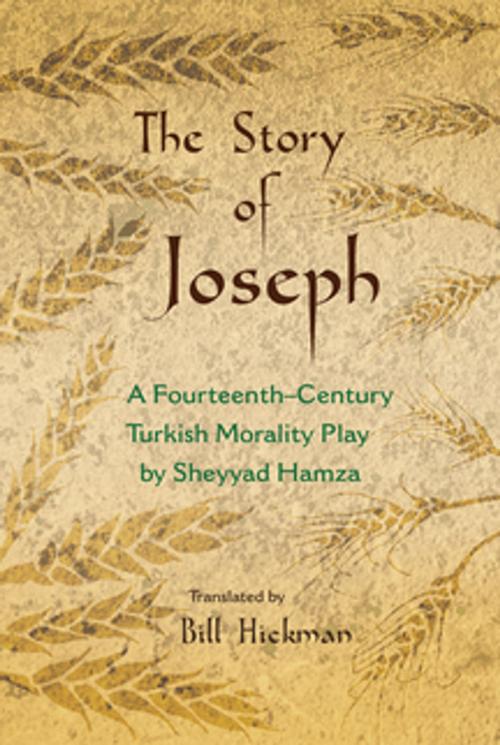The Story of Joseph
A Fourteenth-Century Turkish Morality Play by Sheyyad Hamza
Fiction & Literature, Literary Theory & Criticism, Asian, Middle Eastern, Nonfiction, History, Middle East| Author: | ISBN: | 9780815652700 | |
| Publisher: | Syracuse University Press | Publication: | May 8, 2014 |
| Imprint: | Syracuse University Press | Language: | English |
| Author: | |
| ISBN: | 9780815652700 |
| Publisher: | Syracuse University Press |
| Publication: | May 8, 2014 |
| Imprint: | Syracuse University Press |
| Language: | English |
At the heart of this volume is the translation of a fourteenth-century Turkish
version of the Joseph story, better known to Western readers from the
version in Genesis, first book of the Hebrew Bible. Hickman provides us
with a new lens: we see the drama of the Old Testament prophet Joseph,
son of Jacob, through Muslim eyes. The poem’s author, Sheyyad Hamza,
lived in Anatolia during the early days of the Ottoman Empire. Hamza’s
composition is rooted in the recondite and little-studied tradition of oral
performance—a unique corner of Turkish verbal arts, situated between
minstrelsy and the "divan" tradition—combining the roles of preacher and
storyteller. A cultural document as well as a literary text that reflects the
prevailing values of the time, Hamza’s play reveals a picture of Ottoman
sensibility, both aesthetic and religious, at the level of popular culture in
premodern Turkey. To supplement and contextualize the story, Hickman
includes an introduction, a historical-literary afterword, and notes to the
translation, all ably assisting an unfamiliar reader’s entry into this world.
At the heart of this volume is the translation of a fourteenth-century Turkish
version of the Joseph story, better known to Western readers from the
version in Genesis, first book of the Hebrew Bible. Hickman provides us
with a new lens: we see the drama of the Old Testament prophet Joseph,
son of Jacob, through Muslim eyes. The poem’s author, Sheyyad Hamza,
lived in Anatolia during the early days of the Ottoman Empire. Hamza’s
composition is rooted in the recondite and little-studied tradition of oral
performance—a unique corner of Turkish verbal arts, situated between
minstrelsy and the "divan" tradition—combining the roles of preacher and
storyteller. A cultural document as well as a literary text that reflects the
prevailing values of the time, Hamza’s play reveals a picture of Ottoman
sensibility, both aesthetic and religious, at the level of popular culture in
premodern Turkey. To supplement and contextualize the story, Hickman
includes an introduction, a historical-literary afterword, and notes to the
translation, all ably assisting an unfamiliar reader’s entry into this world.















